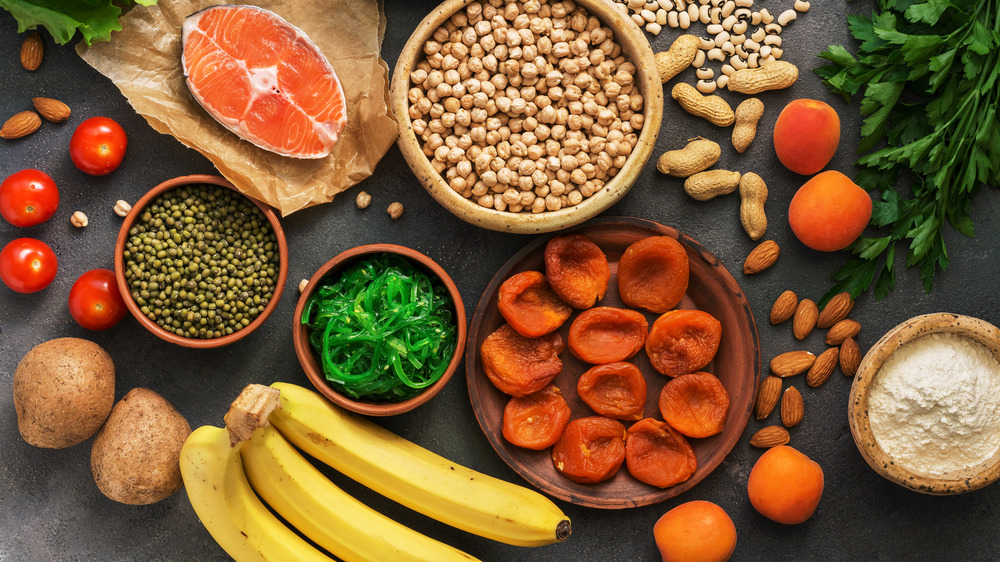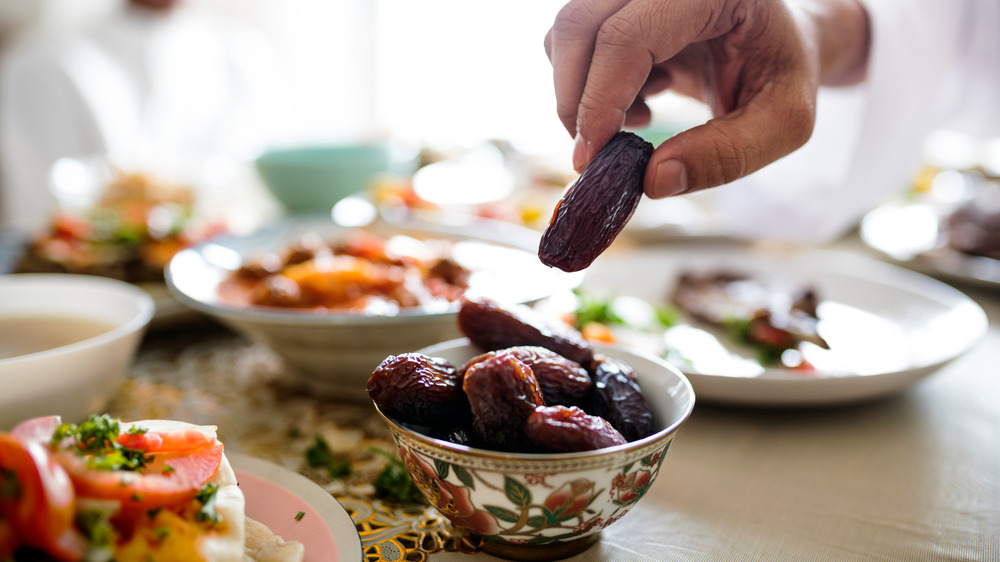Fresh Fruit Vs Dried Fruit: Which Is Better For You?
You've probably had it pounded into your head that eating fruits and veggies equals a healthy diet. But much like eating a massive cheeseburger with a side salad or chugging three glasses of orange juice, a "healthy" meal depends upon its context (via Dietetically Speaking). Did that veggie side really add anything of value? Did your OJ moment lead to a spike in blood sugar? When it comes to fruit, too, more isn't always better. So you should pick your fruit types wisely. You can always go with fresh fruit, believing that nothing beats a classic. But another popular option is dried fruit, a favorite of trail-mix munchers and bulk bin buyers.
Dried fruits definitely have their advantages. They last in your pantry, are easy to pack, and are jam-packed with nutrients. Dried apricots, dates, figs, and raisins are high in potassium, which you need to keep regulate blood pressure, muscle contractions, and nerve signals (via the University of Wisconsin and Healthline). Dried fruits are also high in fiber, which helps prevent constipation and — bonus — is great for your gut biota (via Medical News Today). But how does all this dry, fruity goodness stack up against the fresher counterpart healthwise?
Fresher is better
Fresh fruit and dried fruit share one main difference: concentration. Because dried fruits are just missing their water, they become smaller and pack in way more sugar and calories per volume than a fresh fruit would (via Have a Plant). And because they're so small — more bang for your buck! — it's important to watch portion size. It's easy to toss back 10 or so dried apricots, but when you think about what those fruits looked like fresh — well, it's a whole lot. According to Consumer Reports, just one-and-a-half dried figs will give you 70 calories. The same holds true for eating three dates or two tablespoons of dried blueberries or cherries. And dried fruit can even lead to gas or bloating if you overdo it.
If you're watching your blood sugar, look at the glycemic load when deciding between fresh and dried fruit. According to the New York Times and Healthline, dried fruits tend to be higher on that scale, and it can take more dried fruit than whole fruit to fill you up. But whether you prefer fruit dried or fresh, smoothie-d or juiced, it's generally good to try a variety and keep track of sugar and other nutrient content.

